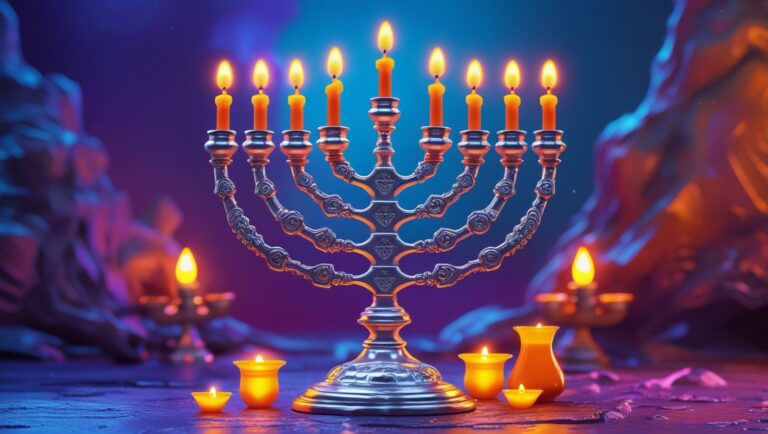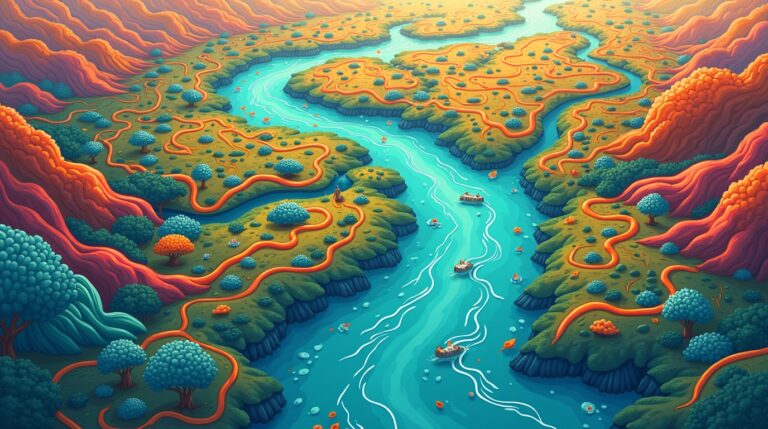Once again, Breslov literature sheds light on one of the most obscuringly simply concepts we have in Torah: Gratitude
Gratitude is more than just saying “thank you”.
It expresses a quintessential truth of the human soul, which is to acknowledge the source of the good that it has received.
But what does gratitude really cause inside us?
Why is it so important to be genuinely grateful?
In this article we will explore deeply some of the effects the grateful soul feels when it expresses a sincere “Thank you”.
The world as we live
The physical world we live in betrays its spiritual essence. At first, this statement looks very enigmatic. Jewish Tradition says we are supposed to look into physicality and grasp the spiritual.
So what’s the deal with that?
While in a living state what we grans with our senses might seem very real, in reality it seldom is. In almost all matters, people appear to be more or less than they really are. This is a lot deeper than it sounds at first glance.
We have a very flawed perception of the universe, which is mostly filtered by our (often warped) beliefs and knowledge. True perception (or, in Kabbalah parlance, Da’at) is only acquired by shedding the impurities from our intellect. And it takes a lot of years of self-mastery to come to a true, objective appreciation of reality.
Purifying our minds allows us to climb the spiritual worlds. As a consequence, the more one can perceive what really lies behind all masks and charades. And, as one moves closer to God, deepening his perception, the more one sees more beauty and blessing in the world, and lives better and happier.
Expressing truth and perfecting it through gratitude
The human soul longs for the Creator, who is the source of all reality. This fact has many deep implications, but one of them is that we all, deep inside strive to go back to our Source, despite the fact that our bodies scream otherwise. Ultimately, according to Rabbi Moshe Chaim Luzzatto (the Ramchal) in his book Orchot Tzaddikim, true spirituality, reaching towards God is the only thing that justifies life.
It’s very painful for the soul to be bound in physicality. So, when we genuinely express gratitude, we are not just thanking another, but rather tracking the good back to its source and bringing it to this physical world by speaking.
That, in itself is a great exercise in nullifying the ego, our identification with the lower self. Not only that, but gratitute breaks our regular thinking pattern of taking everything for granted, giving us a slight lift upwards.
This is not a trivial exercise. The Jewish masters of the Mussar (self-discipline) movement emphasized greatly the importance of proper gratitude. As one can imagine, it’s not the outward gesture that counts as much as the inner transformation and genuine expression of the soul, which is granted an opening from our crude body.
But there’s another aspect of gratitude. When we thank another, we need to be conscious that this person was also sent by the Creator. Everything we experience is an act of God and tracking it back to the real source is pretty much the goal of spirituality. And it’s very uplifting.
Sure enough, one has to thank the doctors, but were it not for the fact that God created them in the first place, and allowed them the possibility of learning and working (not to mention giving a functioning body for free), there wouldn’t be anyone to cure us. Since the people who doe us a favor (even a “paid favor” like curing us) are a “step above us”, we are able to ascend the ladder of consciousness and become closer to God.
An example
As we know, Moshe Rabbenu, the greatest of all prophets. Some 3.300 years ago, he was commanded not to hit the waters of the Nile when he was to bring forth the plague of blood to Ancient Egypt. Instead, Aharon, his brother was commanded to do so.
Why is that?
The Jewish sages explain that Moshe didn’t want to act ungratefully to the river for having carrying him safely when he was left in a basket there as a baby.
But this is not enough and raises another question: are rivers actually sentient and capable of feeling?
The answer is revised by the Rabbis and, as it turns out, Moshe Rabbenu did not want to act in a way that could potentially damage his soul by not acknowledging the good… even of something inanimate as the river! And that’s because, this small slight would cause a very undesirable impression in his soul!
Good is good, no matter where it comes from. When we fail to acknowledge it, that’s a reflection of a reflect we keep inside.
Gratitude in marriage
Rabbi Shalom Arush in his famous Garden of Peace (there’s a version for men and another for women) writes that gratitude is the foundation of marriage. Spouses should never let a day pass by without thanking each other for something.
Knowing what to thank for is more than just a nicety we do to keep the other happy, but an exercise in finding God even in simple things.
The 3-letter Hebrew word for man is Ish (alef, yod and shin) and for woman is Isha (alef, shin and heh). Both of them contain the word Esh (Fire, composed of alef and shin). The remaining letters, yod and heh form one of the names of God.
By this, the Jewish sages explain that if a man and a woman bring God to the marriage, they are complete (Ish and Isha), whereas if they leave Him out, there’s only fire (Esh).
Revealing that spark of the divine by acknowledging that we received something is in fact one of the greatest favor we can do our spouses and ourselves. If we are to live a happy, fulfilling life, that is.
Conclusion
We see then that gratitude transcends the natural inclinations of the human body. It’s more than just words, but a true expression of the soul.
Being grateful is one of the keys to transcendence and allows us to be more fully in control of our feelings. One who can’t be thankful is blind and weak simply because we ALL have something to be thankful for. So, failing to acknowledge that isn’t “self-sufficiency”, but a very serious defect.
The psychological benefits have already been amply documented by science.
Happier people thank more.
Thankful people are happier.
So, who do you have to thank for today?







